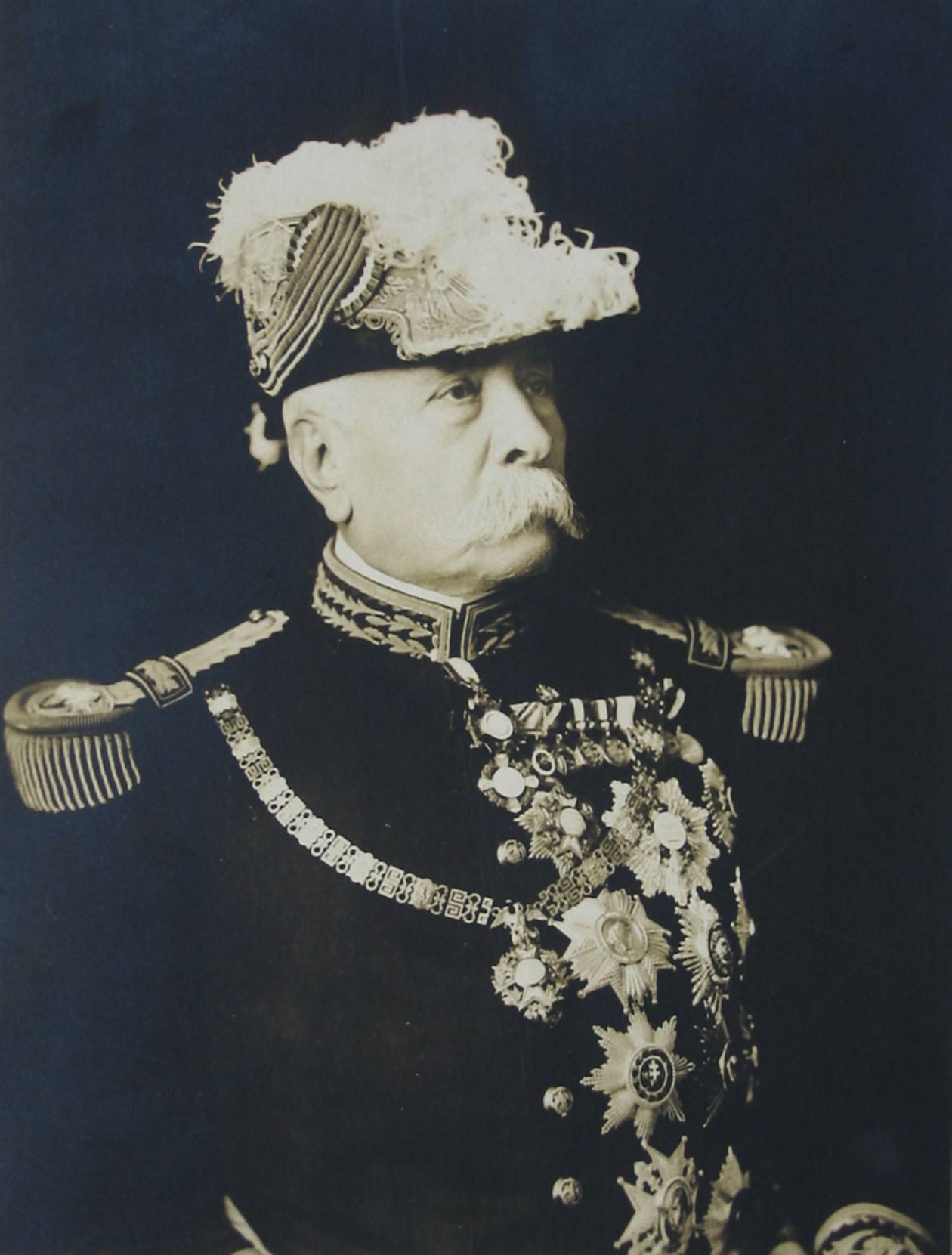|
Felipe Neri Jiménez
Felipe Neri (sometimes known as Felipe Neri Jiménez; 23 August 1884 – January 1914) was a soldier and general in the Mexican Revolution. Early life He was born in the neighborhood of Gualupita, in Cuernavaca, Morelos, on 23 August 1884, to Pedro Neri and Faustina Jiménez. Before the Mexican Revolution Felipe Neri worked as a kiln operator at a Chinameca hacienda. The Revolution He joined the rebellion in March 1911 and took part in the Battle of Cuautla. A bomb which he mis-threw exploded nearby and left him completely deaf.Samuel Brunk, ''Emiliano Zapata: revolution & betrayal in Mexico'', UNM Press, 1995, pg. 71/ref> Subsequently he served with Emiliano Zapata, Zapata as an explosives expert and divisional general. He constructed bombs for the revolutionaries out of salmon cans.Samuel Brunk, ''Emiliano Zapata: revolution & betrayal in Mexico'', UNM Press, 1995, pg. 99/ref> According to some sources the incident that took away his hearing made Neri particularly ruthless ... [...More Info...] [...Related Items...] OR: [Wikipedia] [Google] [Baidu] |
Cuernavaca
Cuernavaca (; , "near the woods" , Otomi language, Otomi: ) is the capital and largest city of the Mexican state, state of Morelos in Mexico. Along with Chalcatzingo, it is likely one of the origins of the Mesoamerica, Mesoamerican civilization. Olmec works of art, currently displayed in the Museum of Anthropology in Mexico City were found in the Gualupita III archeological site. The city is located south of Mexico City and reached via a 90-minute drive using the Mexican Federal Highway 95D, Federal Highway 95D. The name ''Cuernavaca'' is a phonaesthetics, euphonism derived from the Nahuatl toponym and means 'surrounded by or close to trees'. The name was Hispanicized to ''Cuernavaca''; Hernán Cortés called it ''Coadnabaced'' in his letters to Charles V, Holy Roman Emperor, and Bernal Díaz del Castillo used the name ''Cuautlavaca'' in his chronicles. The coat-of-arms of the municipality is based on the pre-Columbian pictograph emblem of the city that depicts a tree trunk ... [...More Info...] [...Related Items...] OR: [Wikipedia] [Google] [Baidu] |
Mark Of Cain
The curse of Cain and the mark of Cain are phrases that originated in the story of Cain and Abel in the Book of Genesis. In the stories, if someone harmed Cain, the damage would come back sevenfold. Some interpretations view this as a physical mark, whereas other interpretations see the "mark" as a sign, and not as a physical mark on Cain himself. The King James Version of the Bible reads "set a mark upon Cain". Origins There is no clear consensus as to what Cain's mark was. The word translated as "mark" iGenesis 4:15is (ōṯ''), which could mean a sign, omen, warning, remembrance, motion, gesture, agreement, miracle, wonder, or, most commonly, a letter. In the Torah, the same word is used to describe the stars as signs or omensGenesis 1:14, the rainbow as the sign of God's promise never again to destroy his creation with a Genesis flood narrative, floodGenesis 9:12, circumcision as a token of God's covenant with AbrahamGenesis 17:11, and the miracles performed by Moses bef ... [...More Info...] [...Related Items...] OR: [Wikipedia] [Google] [Baidu] |
Mexican Revolutionaries
The Mexican Revolution () was an extended sequence of armed regional conflicts in Mexico from 20 November 1910 to 1 December 1920. It has been called "the defining event of modern Mexican history". It saw the destruction of the Federal Army, its replacement by a Liberation Army of the South, revolutionary army, and the transformation of Mexican culture and Federal government of Mexico, government. The northern Constitutionalists in the Mexican Revolution, Constitutionalist faction prevailed on the battlefield and drafted the present-day Constitution of Mexico, which aimed to create a strong central government. Revolutionary generals held power from 1920 to 1940. The revolutionary conflict was primarily a civil war, but foreign powers, having important economic and strategic interests in Mexico, figured in the outcome of Mexico's power struggles; United States involvement in the Mexican Revolution, the U.S. involvement was particularly high. The conflict led to the deaths of around ... [...More Info...] [...Related Items...] OR: [Wikipedia] [Google] [Baidu] |
People From Morelos
The term "the people" refers to the public or common mass of people of a polity. As such it is a concept of human rights law, international law as well as constitutional law, particularly used for claims of popular sovereignty. In contrast, a people is any plurality of persons considered as a whole. Used in politics and law, the term "a people" refers to the collective or community of an ethnic group or nation. Concepts Legal Chapter One, Article One of the Charter of the United Nations states that "peoples" have the right to self-determination. Though the mere status as peoples and the right to self-determination, as for example in the case of Indigenous peoples (''peoples'', as in all groups of indigenous people, not merely all indigenous persons as in ''indigenous people''), does not automatically provide for independent sovereignty and therefore secession. Indeed, judge Ivor Jennings identified the inherent problems in the right of "peoples" to self-determination, as i ... [...More Info...] [...Related Items...] OR: [Wikipedia] [Google] [Baidu] |
Zapatistas (1879–1919), Mexican revolutionary
{{Disambig ...
Zapatista(s) may refer to: * Liberation Army of the South, a guerrilla force led by Emiliano Zapata in the Mexican Revolution 1911–1920 ** Zapatismo, the armed movement identified with the ideas of Emiliano Zapata * Zapatista Army of National Liberation, a group that controls territory in Chiapas, Mexico ** Neozapatismo, the political philosophy and practice of the Zapatista Army of National Liberation ** Rebel Zapatista Autonomous Municipalities in Chiapas See also *Emiliano Zapata Emiliano Zapata Salazar (; 8 August 1879 – 10 April 1919) was a Mexican revolutionary. He was a leading figure in the Mexican Revolution of 1910–1920, the main leader of the people's revolution in the Mexican state of Morelos, and the insp ... [...More Info...] [...Related Items...] OR: [Wikipedia] [Google] [Baidu] |
Mexican Soldiers
Mexican may refer to: Mexico and its culture *Being related to, from, or connected to the country of Mexico, in North America ** People *** Mexicans, inhabitants of the country Mexico and their descendants *** Mexica, ancient indigenous people of the Valley of Mexico ** Being related to the State of Mexico, one of the 32 federal entities of Mexico ** Culture of Mexico *** Mexican cuisine *** historical synonym of Nahuatl, language of the Nahua people (including the Mexica) Arts and entertainment * "The Mexican" (short story), by Jack London * "The Mexican" (song), by the band Babe Ruth * Regional Mexican, a Latin music radio format Films * ''The Mexican'' (1918 film), a German silent film * ''The Mexican'' (1955 film), a Soviet film by Vladimir Kaplunovsky based on the Jack London story, starring Georgy Vitsin * ''The Mexican'', a 2001 American comedy film directed by Gore Verbinski, starring Brad Pitt and Julia Roberts Other uses * USS ''Mexican'' (ID-1655), United State ... [...More Info...] [...Related Items...] OR: [Wikipedia] [Google] [Baidu] |
Antonio Barona Rojas
Antonio is a masculine given name of Etruscan origin deriving from the root name Antonius. It is a common name among Romance language–speaking populations as well as the Balkans and Lusophone Africa. It has been among the top 400 most popular male baby names in the United States since the late 19th century and has been among the top 200 since the mid 20th century. In the English language, it is translated as Anthony, and has some female derivatives: Antonia, Antónia, Antonieta, Antonietta, and Antonella'. It also has some male derivatives, such as Anthonio, Antón, Antò, Antonis, Antoñito, Antonino, Antonello, Tonio, Tono, Toño, Toñín, Tonino, Nantonio, Ninni, Totò, Tó, Tonini, Tony, Toni, Toninho, Toñito, and Tõnis. The Portuguese equivalent is António (Portuguese orthography) or Antônio (Brazilian Portuguese). In old Portuguese the form Antão was also used, not just to differentiate between older and younger but also between more and less important. In Galic ... [...More Info...] [...Related Items...] OR: [Wikipedia] [Google] [Baidu] |

